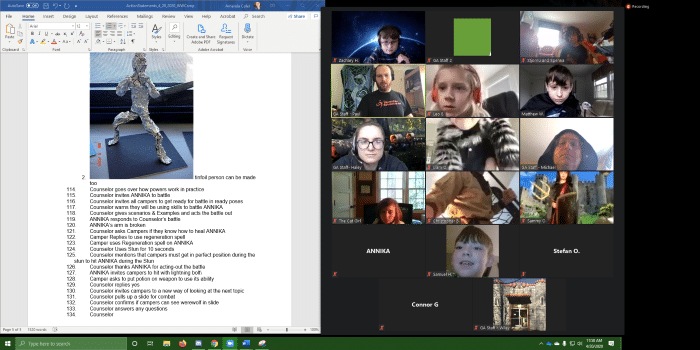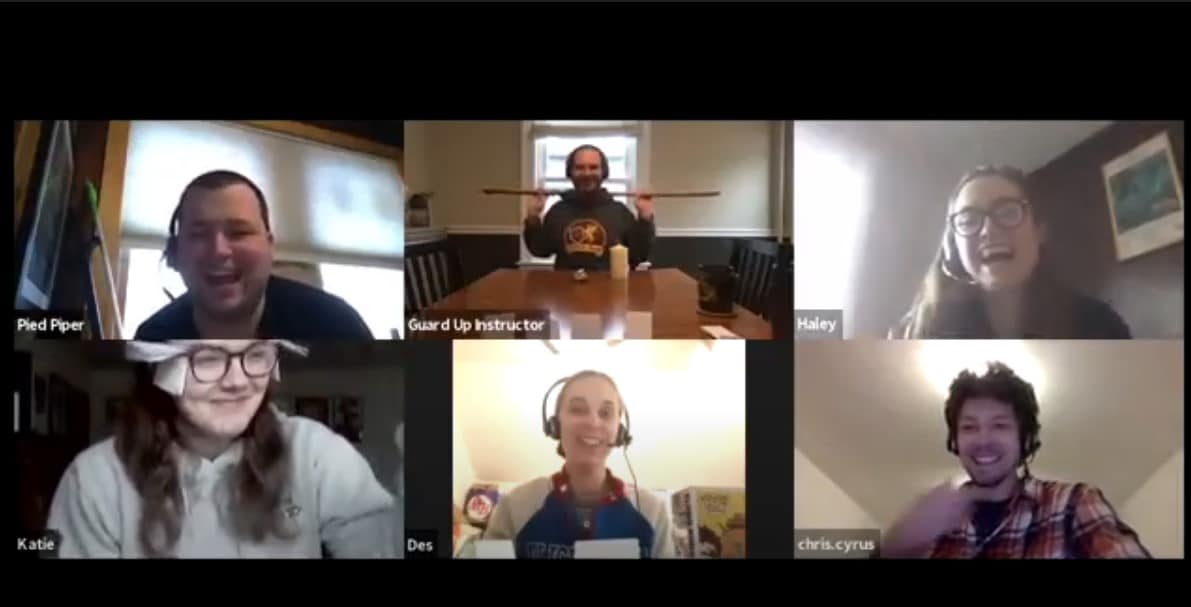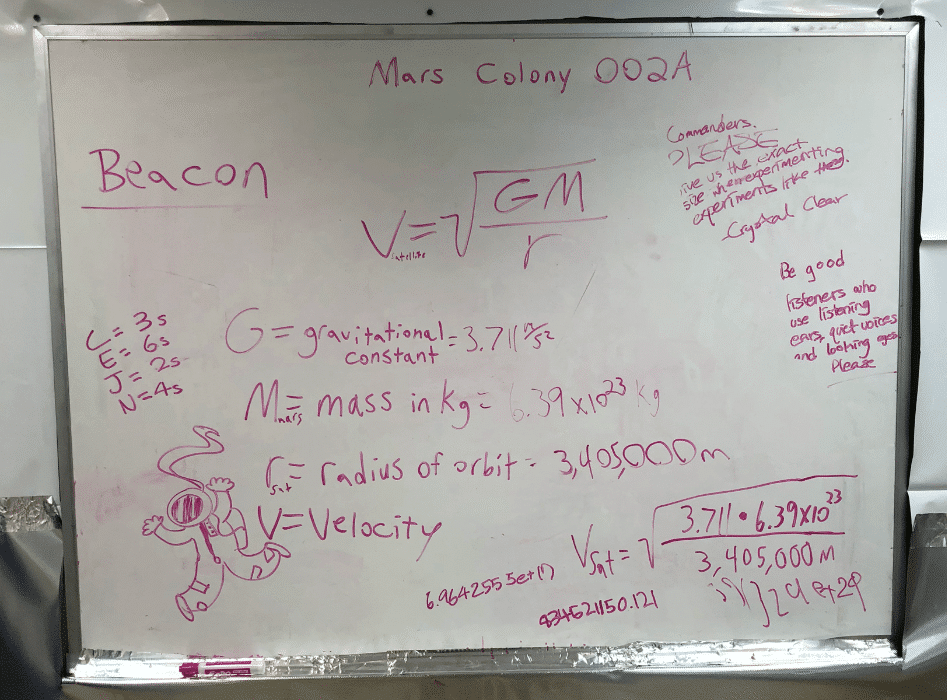Hey there, Summer Camp Directors!
Let’s dive into how you can make your camp unforgettable, not just during the summer but all year round. Imagine keeping your campers and staff hooked with epic stories and adventures, even when they’re not at camp. Here’s how you can use online LARPs (Live Action Role Playing) and Zoom (or other video conference platform) to keep the camp spirit alive…
- Leave Them Hanging: End your summer with a bang and a cliffhanger! It’ll keep your campers thinking about camp all year, eager to jump back into the story when it goes online.
- Zoom Into Adventure: Set up regular online meet-ups where your campers can continue their quests. It’s a great way to keep the story rolling and the creativity (and learning if this is an EduLARP) growing.
- Level Up: Encourage your campers to “power up” their characters in the off-season. If you run a Guild Hall or other means for campers to increase their in-game skills then you can do an online version of this during the online LARPs.
- Dive Deeper: Run some sessions that explore your LARP’s world. The more your campers know about the land and its lore, the more invested they’ll get.
- Make New Friends: Use these online LARPs to help newbies understand how the game works and make friends before summer even starts. Nothing like shared adventures to bond over, right?
- Get Creative with Staff: Let your staff head up the storytelling (as long as it is in keeping with your mission and the world of the LARP you have created). They can help evolve the plot and bring fresh ideas that will make next summer even more awesome.
- Feedback is Gold: After each online session, ask what everyone thought. This helps you tweak things to make your LARP adventures even better. One thing to remember: When you run an emotionally intense session, even if it is over Zoom, always include a Debrief at the end so that the campers can process the their feelings about the adventure in a safe environment. This has a significant impact on the retention and use of new knowledge if your camp uses LARP to explore SEL or STEM topics.
- Off Season Revenue: Think about charging a small fee for the off-season sessions. It’s a win-win: extra funds for you, continuous adventure for them. And the events are not weather dependent!
- Global Overnight Camper & Staff Reach: Off-season Zoom-based LARPs can extend your overnight camp’s reach beyond your region, inviting kids and potential staff from all around the world to join in the fun. This global connection not only enriches your camp community with diverse perspectives and cultures but also allows international campers to make friends, familiarize themselves with your camp’s culture, and get excited about possibly attending in person in the future. It’s a great way to build a worldwide camp family and showcase your camp’s unique experiences to a global audience.
- Tease Them for Next Summer: Drop hints, teasers, and cool updates about what’s coming up in the camp’s story and activities. It keeps the hype going and might even attract new faces – especially if your campers are allowed to invite their friends.
An in-person event idea is Mini-LARPs for Locals. If you run day camps, how about in-person mini-LARP events nearby during the off-season? Keep your local campers engaged and excited and encourage them to bring their friends.
If you keep the adventure going all year, you’re not just a summer camp; you’re a year-round community. Your campers and staff will be more engaged than ever and excited for summer to roll back around. Let’s make camping more than a summer thing – let’s make it a lifelong adventure!
Guardian Adventures provides LARP and game consulting and program development for museum and science centers, summer camps, amusement & attraction industries, and more.








 About the Author:
About the Author: 